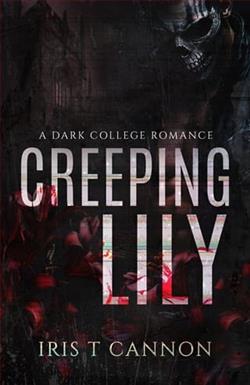Page 13 of Matches and Mistletoe
(This story is related to the Korrigan series and features a character from that trilogy. The same character also features prominently in the bookLair of Thieves and Foxes.)
The baby’s cry is like the scraping of sharp nails across metal.
I’ve heard it so many times in the past months that I hate the sound.
My first child, Ellie, was round and rosy and bubbly. She bounced into the world with a lusty shout and barely cried after that.
This one, the new one, about five months old—she’s fretful. Always making some sound—whine, whimper, cry, scream. It takes a toll.
Maybe the difference between them is the absence of Tom. The first time, with our oldest, he was here to help me. He loved his sleep too much to get up when she woke at night, but he would care for her during the day so I could take a nap or a bath.
But Tom has been dead for a little over a year. He came home on leave and knocked me up. And then he went back to the war and immediately got shot through the throat by some Nazi scum. At least I hope it was a Nazi. I suspect that the cases of friendly fire are more frequent than we’re led to believe.
So now Tom is a ghost, and I am a raw nerve, a raveling thread, a carcass gnawed to the bone. I give and give and give to the girls, until there is nothing left of me, or for me.
When I have to go to work, I leave both girls with a grouchy, oversized woman who watches ten children in the confines of her dingy living space. I stand in a clothing store all day, smiling and speaking softly to women who buy beautiful things that I will never be able to afford. I smile while my feet are throbbing in my shoes, and my head is aching from lack of sleep.
I pay the grouchy woman, and I count up the little money that’s left, and I worry about when it will run out. I have nothing but tired eyes and worn smiles left for my daughters.
If I could only save up a little money, I would take a week off to be with my girls, and to search for a better job. If I could only get ahead, just a little, I could buy a better car, one that would let me commute further to work. I would have more options. More money. More time, more choices.
Maybe my baby is fretful because she’s never had a relaxed, loving, peaceful mother. Maybe it’s all my fault that she’s unhappy most days, and most nights.
Sometimes, when Mary shrieks in the wee hours, I cry into my pillow because I am so tired and the thought of getting up again is torture. But I always find that last scrap of strength, the bit of willpower I need to go to her. To keep her alive.
She’s crying more loudly now. I set down the dish I was scrubbing and dry my hands. Mary took a long nap this afternoon, which will mean a later night for her, and for me. But I couldn’t bear to wake her, not when I could use the spare time to wash a few dishes and make a hot meal instead of throwing together a few sandwiches.
Before I tend to the baby’s cries, I go to the back door and call for Ellie. “Ellie! It’s dark now. Enough play—you need to come inside.”
She doesn’t answer right away. I scan the snow-covered yard, searching the golden strips of light from the windows, the blue shadows where the snow drifts, and the deeper shadows where our yard blends with the forest.
She’s nowhere to be seen, and my heart jerks in my chest. Rubbing my rosary beads with my fingers, I step outside, ready to start a frantic search.
But then she comes out of the trees, walking slowly and deliberately toward me. Her blue eyes meet mine, her brown hair falling in perfect ringlets over the shoulders of her faded blue coat. She’s outgrowing the coat, but she loves it, and I have no money to buy her another.
“Why were you in the woods? You know you’re not supposed to go back there. You have to stay where I can see you from the kitchen.”
She doesn’t answer, only smiles. It’s an odd smile, and something about her eyes doesn’t seem quite right. But the baby’s screams are louder and more frantic now, so I hustle Ellie inside and I dash to the bedroom.
“Shh, hush now.” I turn on the lamp, pluck Mary out of her crib, and sway her back and forth. She hunts around my breast with her mouth, so I sit in the narrow rocker and feed her. She’s a fussy eater, too, never satisfied with her latch, pulling away again and again to cry.
Someday this will be over, I tell myself.Someday I will be healthy again. Someday I will be happy again.
When Mary has more or less finished her meal, I lay her in the crib with a couple of toys. “Ellie!” I call. “Come in here and watch your sister for me, for a minute.”
She comes, walking in that slow, careful way again, still not speaking. Normally her four-year-old tongue is never silent.
“You’re very quiet tonight,” I say. “Are you all right?”
She nods—and again that strange, toothy smile.
Everything is fine. You’re imagining things.
I leave the bedroom and head for the kitchen. I still have to clean a few pots—better to do it now, while they’re both awake and content.
In my mind, I see Ellie’s odd smile again. Too wide, too full of teeth. And it’s quiet in the bedroom, too quiet.
Instead of walking to the kitchen, I turn, and I walk back into the bedroom.















